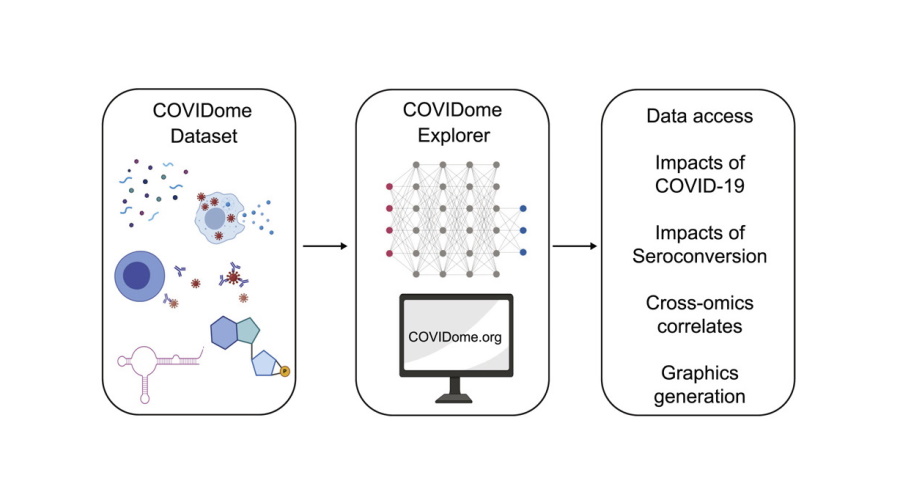Welcome to the COVIDome, a new tool for COVID-19 R&D

Take a cohort of people hospitalised with COVID-19 and a group of negative controls, carry out extensive biological profiling of both groups and place all the information in a database.
What do you get? A new R&D toolkit called the COVIDome, which has been shared by its developers in the hope that it could accelerate research into new approaches to the clinical management of COVID-19.
The dataset has been created researchers at the University of Colorado in the US, who have just launched a public online portal – called the COVIDome Explorer – to share it with researchers around the world.
"Our mission for the COVIDome Explorer is to enable the development of better prevention, diagnostic and therapeutic tools for the clinical management of COVID-19," said Joaquin Espinosa, who leads the research team behind the project.
"Although great progress has been made in all these areas, the speed of research for COVID-19 has been hampered by the lack of widely accessible, public datasets that can be analysed and reanalysed in real time by anyone," he added.
To plug that gap, the team collected demographic and clinical data and combined that with analysis of whole blood transcriptomes – the mRNA coded for by genes that in turn is used to produce proteins – metabolic profiling of plasma and red blood cells, and mapping of subjects' immune cells and cytokines.
They have previously used a similar approach to develop TrisomExplorer, a tool used for researching Down syndrome.
The COVIDome was road-tested using a comprehensive analysis of biosignatures associated with levels of C-reactive protein (CRP), which when present at high levels serves as a clinical marker of poor prognosis in COVID-19.
Interrogating the platform revealed a number of biological factors that could be linked to high CRP levels. That included damage-associated molecular patterns or DAMPs – molecules within cells are a component of the innate immune response released from damaged cells – low levels of certain protease inhibitors, and metabolic signals indicating that mitochondria were not working correctly.
"Now more than ever, with the rise of the COVID-19 delta variant and breakthrough infection rates rising, it's critical to have easy and timely access to COVID data to combat the pandemic," said Thomas Flaig, vice chancellor of research at Colorado's Anschutz Medical Campus.
A paper describing the COVIDome dataset and Explorer front end has been published in the journal cell Reports.












